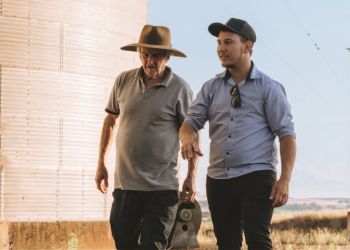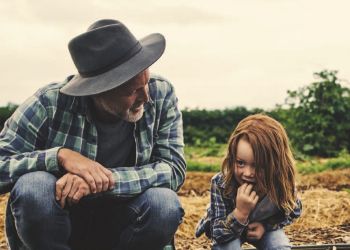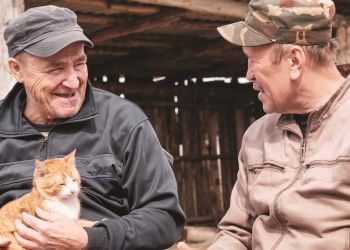By Elizabeth Pace, Public Health Advisor, Integrated Food Safety Centers of Excellence, Centers for Disease Control and Prevention
 If your New Year’s resolution is to improve your health department’s foodborne illness investigations, the Centers for Disease Control and Prevention’s (CDC’s) Integrated Food Safety Centers of Excellence (CoEs) can help. The CoEs were established under the Food Safety Modernization Act to serve as resources for other local, state, and federal public health professionals to investigate and respond to cases of foodborne illnesses and outbreaks. CoEs develop education materials, deliver trainings, and provide consultation services through peer support to improve foodborne illness surveillance and outbreak response capacity.
If your New Year’s resolution is to improve your health department’s foodborne illness investigations, the Centers for Disease Control and Prevention’s (CDC’s) Integrated Food Safety Centers of Excellence (CoEs) can help. The CoEs were established under the Food Safety Modernization Act to serve as resources for other local, state, and federal public health professionals to investigate and respond to cases of foodborne illnesses and outbreaks. CoEs develop education materials, deliver trainings, and provide consultation services through peer support to improve foodborne illness surveillance and outbreak response capacity.
There are six CoEs, located at state health departments working in partnership with academic institutions:
- Colorado:
Colorado Department of Public Health and Environment
Colorado School of Public Health - Florida:
Florida Department of Health
University of Florida - Minnesota:
Minnesota Department of Health
University of Minnesota - New York:
New York State Department of Health
Cornell University - Tennessee:
Tennessee Department of Health
University of Tennessee - Oregon:
Oregon Public Health Division
Oregon State University
University of Minnesota
The CoEs have developed more than 80 online products that can be found on the CoE-managed website. The CoE website provides other local, state, and federal public health professionals with immediate access to CoE resources. These online products are free of charge and cover a variety of topics from questionnaire templates to just-in-time trainings. CoEs also provide one-on-one assistance to state and local health departments. This assistance can be in the form of consultation for long-term projects (e.g. data system improvements) or urgent consultation during ongoing outbreaks.
 To better serve their mission of providing tools and resources to assist other local and state health professionals, the CoEs have developed geographic regions. These regions provide a point-of-contact to help guide public health professionals to the resources that best meet their needs. If you’re not sure who to contact for assistance, reach out to the CoE in your region and let them help you navigate the wide array of resources. Contact information for all CoEs is available on the CDC website.
To better serve their mission of providing tools and resources to assist other local and state health professionals, the CoEs have developed geographic regions. These regions provide a point-of-contact to help guide public health professionals to the resources that best meet their needs. If you’re not sure who to contact for assistance, reach out to the CoE in your region and let them help you navigate the wide array of resources. Contact information for all CoEs is available on the CDC website.
A number of CoEs products and services are available online, including:
- Food Source Information Wiki
The Food Source Information Wiki was developed by the Colorado CoE to provide rapid access to basic information on production practices and food distribution systems for a range of agricultural food products, from farm to fork. The wiki improves outbreak response by bridging the knowledge gap between epidemiologists and food product experts. - Foodborne Illness Introductory Video Series
The Florida CoE has initiated development of a Foodborne Illness Introductory Video Series to inform novice investigators about the basics of foodborne illness and food safety. The first video in this seven part series, “Foodborne Illness: What Problem?” has been released in English and Spanish. - Outbreak Investigation Case Series
The Minnesota CoE recently released the first in a series of case studies covering investigations of outbreaks caused by commercially distributed food items. The case series provides day-by-day details of what the investigators were thinking and the obstacles they encountered. By capturing the nuances of investigations, case studies can serve as a useful training tool. Minnesota plans to develop additional case studies and the Colorado CoE is also developing a case study. - International Outbreak Museum
The International Outbreak Museum is a physical and online collection of exhibits related to foodborne disease outbreaks curated by the Oregon CoE. The museum can be used to educate foodborne disease epidemiologists on food-pathogen associations and evolving investigation methods. - Web-based Team Trainings
To complement in-person team-based training programs, the Tennessee CoE has begun developing online training modules in foodborne disease outbreak detection and response. These trainings can be taken by individuals or groups to improve communication and collaboration among your outbreak response team members. The first two of six planned modules are available online. - Environmental Assessment QuickTrain
The Colorado CoE developed the Environmental Assessment QuickTrain, a series of just-in-time training modules for conducting environmental assessments during investigations of foodborne disease outbreaks. This QuickTrain is designed to be fast and interactive, and serves as a refresher for experienced environmental health (EH) specialists or as an introduction for EH specialists who have never conducted an environmental assessment during a foodborne disease outbreak investigation. - CIFOR Toolkit & Metrics Evaluations
The CoEs are available to help work through CIFOR products. CoEs can assist you when conducting a CIFOR metrics evaluation and can help you work through the Focus Areas of the CIFOR Toolkit. Both of these products allow you to identify gaps and challenges in your food safety program that the CoEs can help you address. - In-Person Team Trainings
The CoEs have been trained to deliver the National Environmental Health Association’s Epi Ready Training. This is a two-day in-person workshop to improve collaboration among outbreak response team members by explaining the roles and responsibilities of all parts of the team. Some CoEs also deliver their own in-person trainings to improve outbreak detection and response.
To get updates on the CoEs, check out our Twitter page @FoodSafetyCoE or email Elizabeth Pace to be added to the mailing list of our quarterly newsletter, Centered on Food Safety.






